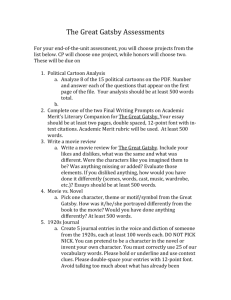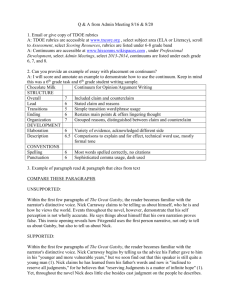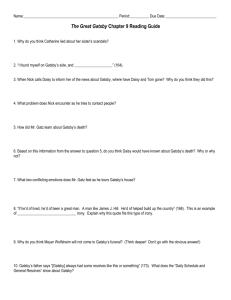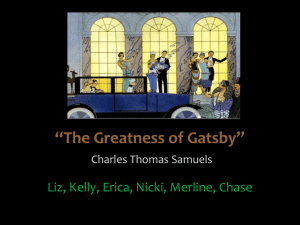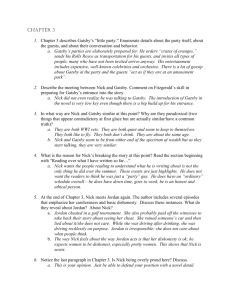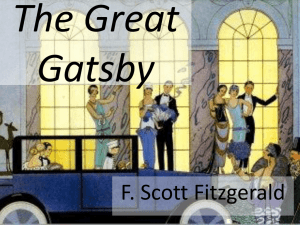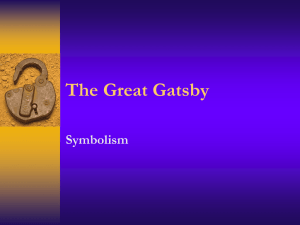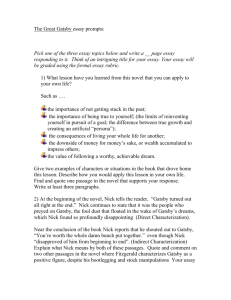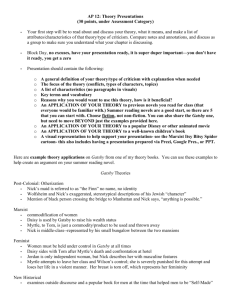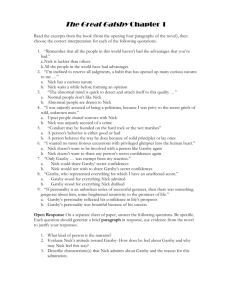Chapter 9 What makes Nick assume responsibility for the funeral
advertisement
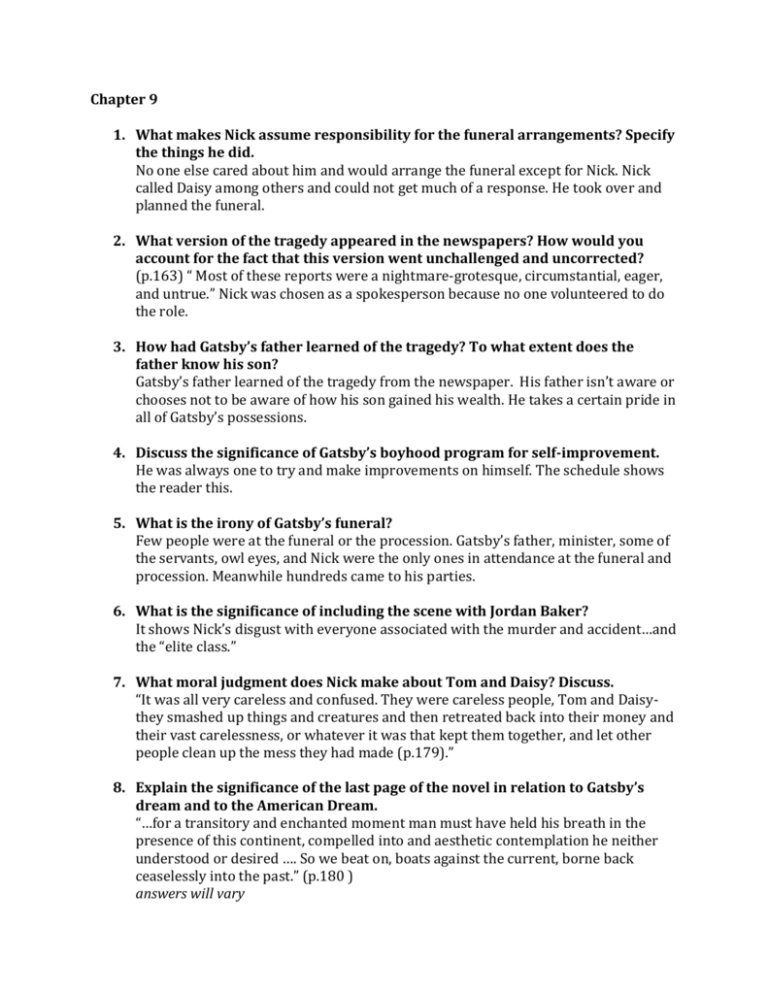
Chapter 9 1. What makes Nick assume responsibility for the funeral arrangements? Specify the things he did. No one else cared about him and would arrange the funeral except for Nick. Nick called Daisy among others and could not get much of a response. He took over and planned the funeral. 2. What version of the tragedy appeared in the newspapers? How would you account for the fact that this version went unchallenged and uncorrected? (p.163) “ Most of these reports were a nightmare-grotesque, circumstantial, eager, and untrue.” Nick was chosen as a spokesperson because no one volunteered to do the role. 3. How had Gatsby’s father learned of the tragedy? To what extent does the father know his son? Gatsby’s father learned of the tragedy from the newspaper. His father isn’t aware or chooses not to be aware of how his son gained his wealth. He takes a certain pride in all of Gatsby’s possessions. 4. Discuss the significance of Gatsby’s boyhood program for self-improvement. He was always one to try and make improvements on himself. The schedule shows the reader this. 5. What is the irony of Gatsby’s funeral? Few people were at the funeral or the procession. Gatsby’s father, minister, some of the servants, owl eyes, and Nick were the only ones in attendance at the funeral and procession. Meanwhile hundreds came to his parties. 6. What is the significance of including the scene with Jordan Baker? It shows Nick’s disgust with everyone associated with the murder and accident…and the “elite class.” 7. What moral judgment does Nick make about Tom and Daisy? Discuss. “It was all very careless and confused. They were careless people, Tom and Daisythey smashed up things and creatures and then retreated back into their money and their vast carelessness, or whatever it was that kept them together, and let other people clean up the mess they had made (p.179).” 8. Explain the significance of the last page of the novel in relation to Gatsby’s dream and to the American Dream. “…for a transitory and enchanted moment man must have held his breath in the presence of this continent, compelled into and aesthetic contemplation he neither understood or desired …. So we beat on, boats against the current, borne back ceaselessly into the past.” (p.180 ) answers will vary

